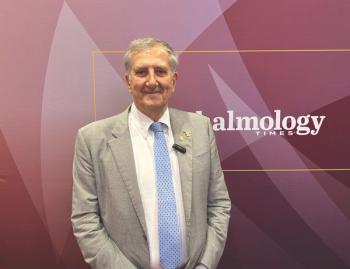
EUREQUO - the idea and the execution
Professor Mats Lundstrom, chairman of EUREQUO, talks to OTE about the project and its dissemination in Europe.
In a recent survey the majority of our readers were unaware of the European Registry of Quality Outcomes for Cataract and Refractive Surgery project (EUREQUO) which will be introduced into 16 European countries between now and 2011.
Q: What is the EUREQUO project all about?
The idea is that ultimately all participating countries will have a national register of clinical outcomes of cataract and refractive surgery and those doctors who wish to participate will be able to monitor the outcomes of their surgery and also enable them to compare their results with others. EUREQUO aims to make a significant impact on the exchange of best practice between practitioners in relation to patient safety in this field. The National Ophthalmology Societies of the participating countries will have an active role in the implementation of the project at national level. The project is a three year programme, which was made up of an assessment phase in year one, which was in 2008, a pilot phase in year two (2009-2010), and roll-out phase in year three (2010-2011). This will enable existing surgical outcome information systems to be evaluated, identify software requirements of the participating National ophthalmology societies, develop and test the system in piloting countries, roll it out and disseminate the information about surgical outcomes at national and international level. We hope that this in turn will lead to the development and evaluation of European quality guidelines.
It has started in pilot countries this year. Scandinavia, the Netherlands and Spain are already collecting data. Go to
Q: How exactly is this going to benefit ophthalmologists?
We will have knowledge based on real information, which means knowledge about results in daily clinical practice. The hope is that these will show the gap between evidence-based practice and reality. A systematic documented data collection on outcomes will identify both good and poor outcomes and so we will know what need be become better. Judging ones own results and comparing them with others should raise the standard of surgery.
Q: Aren't you asking quite a lot from surgeons who may already have a busy schedule?
Of course, this project is asking for commitment from ophthalmologists. However, it would be fair to say that many doctors do not know the results of their work and being a good surgeon should include collecting data on outcomes as part of the job. That does require some rethinking and strong leadership from heads of departments. And remember, this tool is created by surgeons for surgeons and no one else will have access to data. On the other hand, much reporting from a clinic can be performed by allied personnel.
Q: What has all this cost and hasn't it all been a pretty long, drawn-out process? After all weren't there outcome studies in the form of ECOS (European Cataract Outcomes Study) and RSOIS (Refractive Surgery Outcomes Information System) as far back as 1992?
More information about EUREQUO is available at
Newsletter
Get the essential updates shaping the future of pharma manufacturing and compliance—subscribe today to Pharmaceutical Technology and never miss a breakthrough.




























